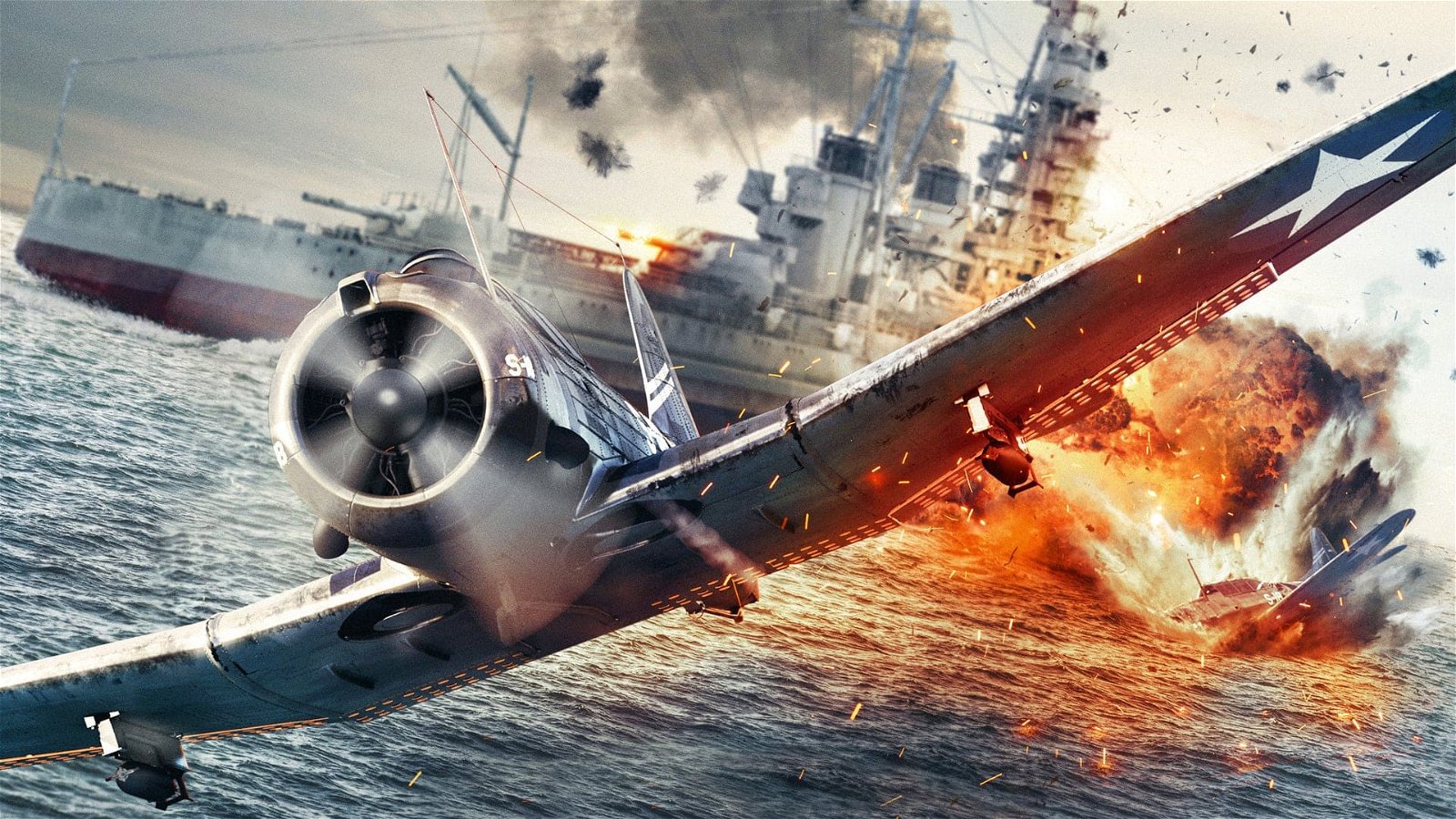Something strange is happening with the reception of Roland Emmerich’s new film Midway, a factual retelling of the events that led to the famous battle in the Pacific: most of the critics seem to hate it (scoring 42% on Rotten Tomatoes), while the audience loves it (scoring 92% on Rotten Tomatoes and topping the box office on its opening weekend).
If Midway was a popcorn film, this would be par for the course – there is no shortage of popcorn films that are hated by critics but loved by audiences, such as the Transformers movies. The problem is that Midway is not a popcorn movie.
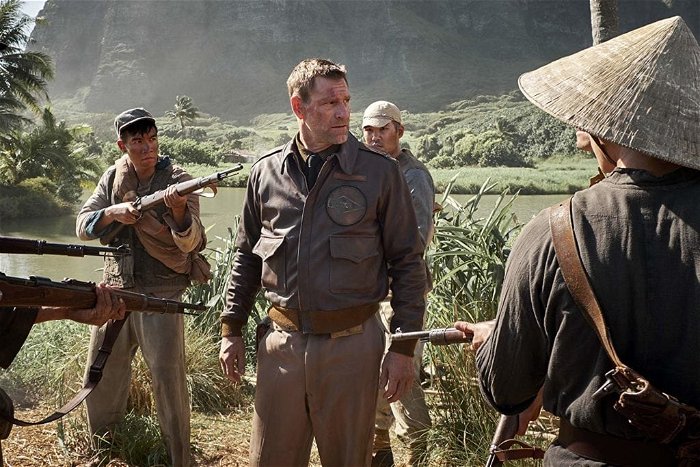
Midway is a type of war movie the cinema hasn’t seen since Tora! Tora! Tora! in 1970 or The Great Raid in 2005 – a factual retelling of events with little to no embellishment. Every moment between the attack on Pearl Harbor and the end of the Battle of Midway that can be crammed into the movie is there, right down to the more outlandish – John Ford actually was on Midway Island filming the battle, and Emmerich toned down Ford’s presence for the movie.
And, the movie works – it is engaging and tense, the aerial sequences are breathtaking, and both sides are presented even-handedly as human beings. By the time the battle starts, the viewer understands what is happening, why it is happening, as well as the stakes involved. This makes the sheer contempt of the critical response all the more baffling, with some critics describing the movie so poorly that one can be forgiven for wondering if they had even watched it before writing their reviews.
So what is going on? Why is a very good movie being savaged and treated with outright contempt?
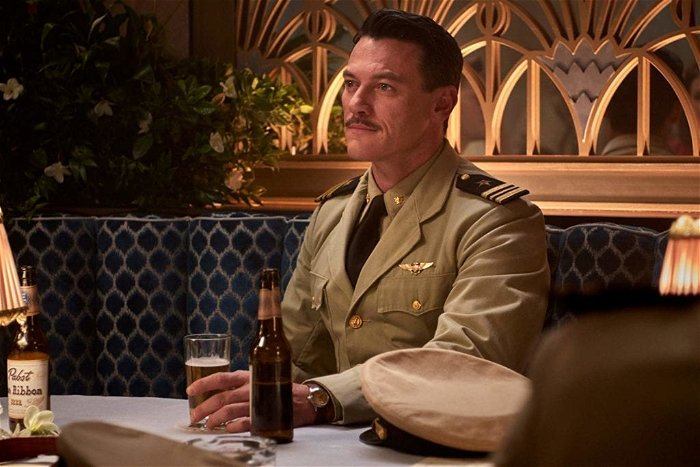
One reason is the current political environment. There is a strong streak of identity politics running through a number of the negative reviews. Odie Henderson at RogerEbert.com complained in a comparison to Michael Bay’s Pearl Harbor that “Bay was smart enough to include a scene showing the heroics of African-American messman Dorie Miller,” and that Emmerich “sidesteps the discomfort of representing the segregation of Black soldiers who fought at Midway by eliminating them altogether.” The Daily Californian’s Areyon Jovilette declared that, “The film is a series of generally unflawed white men doing generally heroic things — it is boring and, moreover, is something any audience will have seen over and over again,” adding that “In a time when discourse around detainment centers has reintroduced the United States’ history of internment to the national conversation, the choice to, in 2019, release a film that depicts the Japanese as cold, methodical and calculating villains is nothing short of irresponsible. This, coupled with the liberal slinging of racial slurs, reinforces the fact that at its core, the film is lazy, tone-deaf and pandering.”
But while identity politics accounts for some of the negative reviews, it does not explain all, or even most, of them. Far more typical are reviews such as the Globe and Mail’s Barry Hertz’s, who calls the movie a “choppy bore,” or the Guardian’s Wendy Ide who declares, “Every tired war movie cliche is unearthed in a film that brings nothing new but will no doubt please fans of men in uniform yelling at explosions.” There are critics who love and appreciate the movie, but most of those who don’t can be summarized as “pretty battle scenes, but otherwise boring.”
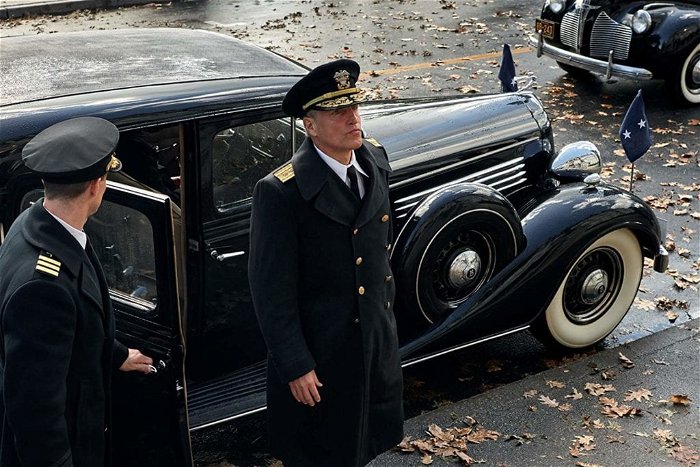
This is not without precedent. Back in 1970, Tora! Tora! Tora! – considered a classic today – received a near-identical critical reception (and, based on Rotten Tomatoes scores, continues to do so), minus the identity politics. Film critics complained about the pacing while praising the action sequences. Roger Ebert gave the film a single star and later, adding insult to injury, gave Michael Bay’s Pearl Harbor a higher score. And, like Midway, Tora! Tora! Tora! connected strongly with audiences.
Another explanation for the critical vitriol is that the critics don’t know the history. All of the cliches critics have complained about were events that actually happened during the battle and the events leading up to it, and have been used often enough in movies that their real-life origins have been forgotten. This can also explain some of the more excessive identity politics complaints, such as the lack of black sailors and soldiers – the American military at the time was segregated and very racist, and, with the very notable exception of the Tuskegee Airmen, did not tend to put African Americans in cockpits or air crews, preventing them from showing up in a movie focused on pilots and air crews. Another possible explanation is war fatigue – the United States and many of its allies have been active in combat operations for almost twenty years, and this would reduce at least some of the audience’s tolerance for war movies.
But underlying all of these is something else – something that both Midway and Tora! Tora! Tora! did, or more precisely, didn’t do. Midway does not pander to anybody.
There are no fictional characters to provide audiences with a more traditional narrative. The chain of events leading up to the battle of Midway is compressed, but not simplified. Both sides are presented warts and all, with their honour, bravery, and racism towards each other intact. The Japanese culture of martial honour is present, but so are the Japanese atrocities against civilians in occupied China. The arrogance that led the Japanese into complacency after their early victories in the Pacific war is also on display.
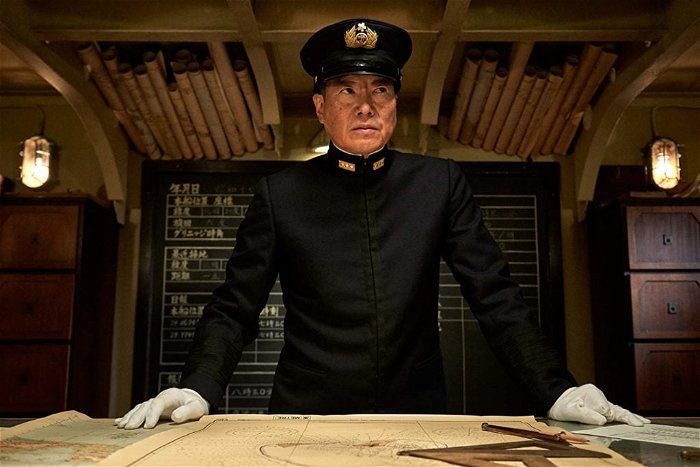
The depiction of the American side is similarly blunt. The American navy has been thrust into a war it is not ready for against a better trained and armed opponent. The Americans achieve operational surprise at the beginning of the battle, and then squander most of it as their torpedo bombers miss every shot and get annihilated – and an earlier scene suggests that even if a torpedo did hit something, it probably wouldn’t explode. Rather than report the position of the Japanese fleet on contact, the American submarine Nautilus tries to hit an aircraft carrier, misses, and gets sunk. By the end of the movie, it is clear that the Americans won the battle of Midway mostly through luck.
Midway doesn’t pander or sugar-coat – it just presents the history without comment, with its complexity intact. The audience response to this is both telling and promising. While many critics have dismissed the movie with various amounts of contempt, audiences have not. They’ve not only demonstrated a willingness to consider the complexities on display, but also a desire to engage with them. In the process, they are rejecting the black-and-white approach of today’s toxic public discourse and simplistic identity politics in favour of a more nuanced view.
In fact, the audience response to Midway may be one of the first concrete steps towards restoring sanity to the public discourse, regardless of whether movie critics are ready for it or not.
